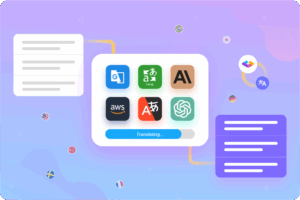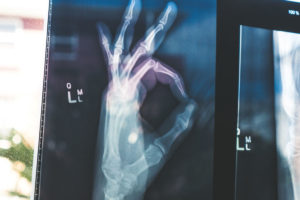While all interpreters are expected to maintain professional confidentiality in their work, it is even more crucial in medical contexts. The conversations between a doctor and patient can be sensitive enough even without the presence of a third party. How do interpreters put their clients at ease and guarantee that what is being shared will remain private? By educating yourself about HIPAA and its purpose, you can feel more informed and confident about these situations.
Protected Health Information

One of HIPAA’s primary purposes is to define “protected health information” (or PHI); and how it should be handled. Medical staff and facilities are required to be compliant with HIPAA’s directives about what data can and cannot be shared.
Interpreters are included in the class of professionals who must follow these rules, even when interacting with other health providers. Outside of the interpreting space, even basic identifying information like a patient’s name or age should never be disclosed. (A good rule of thumb: if you’re not sure whether a piece of information is protected, assume that it is.)
The Further Education offered by Global Arena on this subject are organized into modules that will help you deepen your knowledge:
History: Passed in 1996, HIPAA stands for the Health Insurance Portability and Accountability Act. HIPAA was enacted during the initial rise of the World Wide Web and digital communication. As healthcare providers digitized patient information, it became more easily shared and analyzed, but also more vulnerable to misuse. In this modern context, the law accounts for some of the ways in which PHI might be recorded and transmitted.
Importance of protecting health information:
Not only it is a legal requirement to maintain confidentiality, it is also a moral obligation to the patient. Given the stress that medical issues and language barriers can already cause, your assurance of privacy can give patients relief. This is particularly relevant to interpreters and clients when they are assigning jobs or keeping records (especially in ongoing assignments).
Procedures for safeguarding data:
This module of the course examines some of the ways in which you can ensure that sensitive data stays secure. For example, if you’re an interpreter, you might want to record client in your records by a number or pseudonym. If you’re a client looking to hire an interpreter, you’ll learn what is appropriate to communicate in the initial request. Remember that individual data can be used for a patient to be identified; but so can combinations of anonymized data. For example: recording useful demographic reminders like age range, gender identity, and language spoken might be harmless on its own. But in theory, someone could determine someone’s identity with these factors, so precautions should be taken.
(Note that even without HIPAA, keeping an eye on your data is a good practice in the digital age. Your interpreting records, like all others, should be in a secure place with password protection, encryption, or similar protective measures.)
How to handle violations:
Interpreters need to know that they are not the only ones following the guidance of HIPAA. After exploring why and how to maintain compliance, you will learn how to address circumstances where others are not compliant. Health providers have oversight committees to deal with HIPAA violations, and interpreters should not be afraid to utilize these resources. The primary responsibility for all parties involved in the interpreting situation should be the safety and security of the patient.
Global Arena’s course gives you several opportunities to test your knowledge before an exam at the end of the course. Upon successful completion, you will receive a certificate for your understanding of HIPAA compliance and why it matters for interpreters. Language service providers prefer to see this kind of formal documentation when recruiting medical interpreters. It shows that the interpreter is willing to go the extra step to ensure their own compliance. But more importantly, it demonstrates that they understand the sensitivity of patient data and the importance of keeping it protected.
Ultimately, interpreters offer a point of connection and safe space for patients that encourages them to share more freely. Outside of that context, they might not choose to open up quite so easily.
Understanding the role of the interpreter at these moments is crucial to building trust and delivering the best treatment possible.







